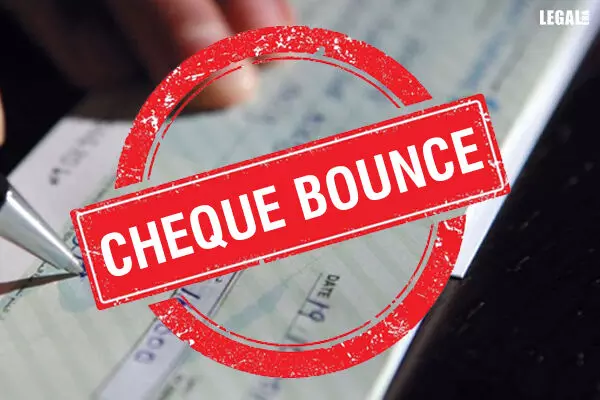- Home
- News
- Articles+
- Aerospace
- Agriculture
- Alternate Dispute Resolution
- Banking and Finance
- Bankruptcy
- Book Review
- Bribery & Corruption
- Commercial Litigation
- Competition Law
- Conference Reports
- Consumer Products
- Contract
- Corporate Governance
- Corporate Law
- Covid-19
- Cryptocurrency
- Cybersecurity
- Data Protection
- Defence
- Digital Economy
- E-commerce
- Employment Law
- Energy and Natural Resources
- Entertainment and Sports Law
- Environmental Law
- FDI
- Food and Beverage
- Health Care
- IBC Diaries
- Insurance Law
- Intellectual Property
- International Law
- Know the Law
- Labour Laws
- Litigation
- Litigation Funding
- Manufacturing
- Mergers & Acquisitions
- NFTs
- Privacy
- Private Equity
- Project Finance
- Real Estate
- Risk and Compliance
- Technology Media and Telecom
- Tributes
- Zoom In
- Take On Board
- In Focus
- Law & Policy and Regulation
- IP & Tech Era
- Viewpoint
- Arbitration & Mediation
- Tax
- Student Corner
- AI
- ESG
- Gaming
- Inclusion & Diversity
- Law Firms
- In-House
- Rankings
- E-Magazine
- Legal Era TV
- Events
- News
- Articles
- Aerospace
- Agriculture
- Alternate Dispute Resolution
- Banking and Finance
- Bankruptcy
- Book Review
- Bribery & Corruption
- Commercial Litigation
- Competition Law
- Conference Reports
- Consumer Products
- Contract
- Corporate Governance
- Corporate Law
- Covid-19
- Cryptocurrency
- Cybersecurity
- Data Protection
- Defence
- Digital Economy
- E-commerce
- Employment Law
- Energy and Natural Resources
- Entertainment and Sports Law
- Environmental Law
- FDI
- Food and Beverage
- Health Care
- IBC Diaries
- Insurance Law
- Intellectual Property
- International Law
- Know the Law
- Labour Laws
- Litigation
- Litigation Funding
- Manufacturing
- Mergers & Acquisitions
- NFTs
- Privacy
- Private Equity
- Project Finance
- Real Estate
- Risk and Compliance
- Technology Media and Telecom
- Tributes
- Zoom In
- Take On Board
- In Focus
- Law & Policy and Regulation
- IP & Tech Era
- Viewpoint
- Arbitration & Mediation
- Tax
- Student Corner
- AI
- ESG
- Gaming
- Inclusion & Diversity
- Law Firms
- In-House
- Rankings
- E-Magazine
- Legal Era TV
- Events
Acquittal order in cheque bounce case not challengeable in Sessions Court: Calcutta High Court

Acquittal order in cheque bounce case not challengeable in Sessions Court: Calcutta High Court
It cited the judgments in the Supreme Court and the Andhra Pradesh High Court
The Calcutta High Court has held that the appeal against the acquittal of the accused in a cheque bounce case can be filed only before the high court under Section 378(4) of CrPC, and not before the Sessions Court.
The bench of Justice Subhendu Samanta held that a complainant in a case u/s 138 of the Negotiable Instrument Act, 1881 is not a victim as defined u/s 2(wa) of CrPC. Therefore, the person cannot file an appeal against the acquittal according to the provision of Section 372 of CrPC.
The court ruled, "The complainant cannot challenge the order of acquittal before the Sessions Court. His only remedy is to file an appeal before the high court with special leave under Section 378(4) of the Code."
It held that since a case was initiated by way of moving a complaint, the complainant could not be held as a victim. Hence, no right accrues to him to file an appeal before the Sessions Court.
However, the proviso to Section 372 said the victim had a right to prefer an appeal against any order passed by the court acquitting the accused or convicting for a lesser offence or imposing inadequate compensation.
The petitioner had appealed before the Sessions Court, challenging the order of the Chief Judicial Magistrate acquitting the petitioner in a cheque bounce case. The court set aside the order and found the petitioner guilty of the offence punishable under the NI Act.
Challenging the order, the petitioner approached the high court. He argued that if in a case instituted on a complaint, an order of acquittal was passed (whether offence was bailable/nonbailable, cognizable/non-cognizable), the complainant could only file the application under CrPC for special leave to appeal against it in the high court and not the Sessions Court.
The court observed that in the P Vijaya Laxmi vs SP Sravana case, the Andhra Pradesh High Court had categorically decided that a complainant under the NI Act could not be categorized as a 'victim' and stood excluded because he was not subject to a charge. His only remedy was to file an appeal under the Code, with special leave against the order of acquittal.
The high court also referred to the Supreme Court ruling in the Subash Chand vs State (Delhi Administration) case, wherein it was held that the complainant could challenge the order of acquittal by filing an application for special leave before the high court and not the Sessions Court.
In view of these judgments, Justice Samanta set aside the appeal stating that the complainant could not take recourse to Section 372 of the Code.



